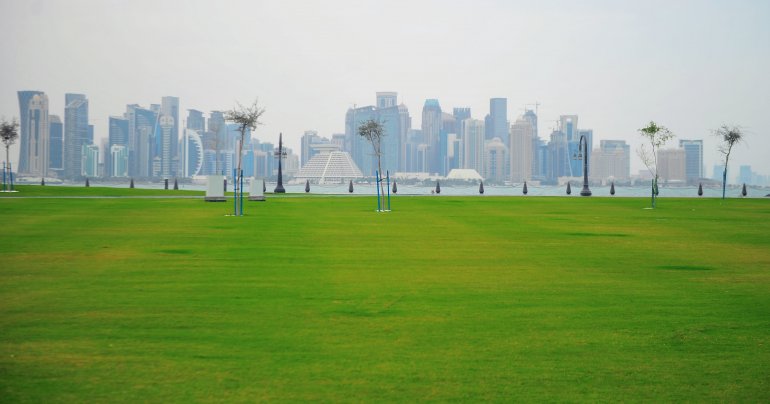The Supreme Committee for Delivery & Legacy (SC), in collaboration with the Ministry of Municipality and Environment, has begun installing air quality monitoring stations at FIFA World Cup Qatar 2022 tournament venues.
The first stations have been installed in the precinct of the Qatar University training site and form part of a project to improve air quality, in line with the FIFA World Cup Qatar 2022 Sustainability Strategy. Monitoring stations will also be installed at the Al Janoub Stadium precinct in the near future.
Jassim Al Jaidah, the SC’s Local Stakeholders Relations Manager for Sustainability, said: “These stations will monitor and measure air quality according to the weather, along with the percentage of gases and other particles in the air. The data provided will help the SC make informed decisions in relation to improving air quality inside Qatar 2022 tournament venues, in line with the FIFA World Cup Qatar 2022 Sustainability Strategy.”
Improving air quality is just one of Qatar’s sustainability goals. The country is committed to hosting a carbon-neutral FIFA World Cup and leveraging the hosting of the mega-event to build a green legacy across the country and region.
In order to achieve a carbon-neutral tournament, the SC has estimated the amount of carbon emissions from hosting the World Cup and raised awareness of reducing emissions with both local and regional stakeholders. Emissions have been reduced during the construction of World Cup infrastructure through a number of means, including the design and construction phases, which have reduced energy and water consumption, prioritised recycling and efficiently dealt with waste.
In addition, every Qatar 2022 stadium is mandated to achieve a four-star rating under the Global Sustainability Assessment System – which, among other things, requires a project to reduce energy and water consumption by 30% compared to international standards.
Helping Qatar achieve carbon-neutral will be the tournament’s small footprint. The compact nature of the event – with all the stadiums close together and no internal flights required for fans and players – will significantly limit the carbon footprint. In addition, Qatar’s green public transport network, including the Doha Metro and electric buses, will support sustainability goals.
SOURCE – https://www.thepeninsulaqatar.com/article/10/08/2021/Air-quality-monitoring-stations-installed-at-Qatar-2022-training-site









